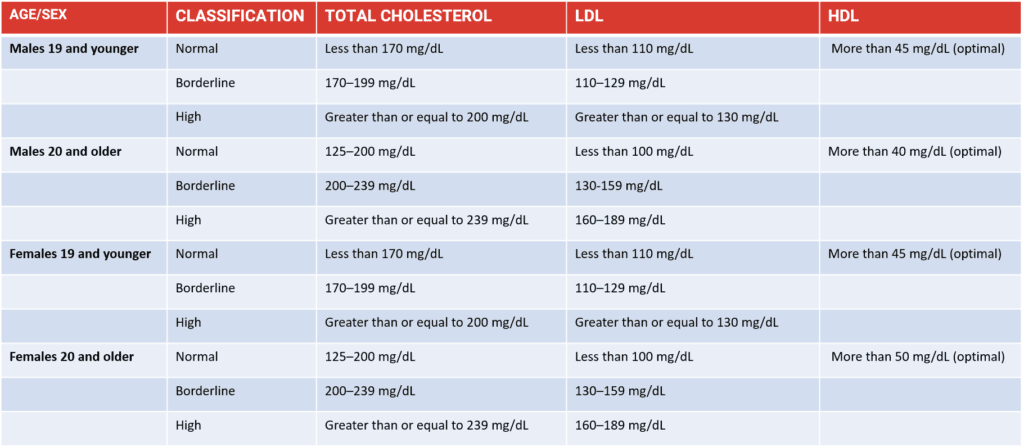Cholesterol: Debunking Myths, Understanding Its Role, and Managing Your Levels
Cholesterol is often misunderstood and surrounded by myths despite its vital role in maintaining overall health. It supports essential bodily functions, but imbalances can lead to serious health issues like heart disease. This article provides an in-depth exploration of cholesterol, addresses common misconceptions, presents recent research, and offers practical strategies for maintaining healthy cholesterol levels using our Cholesterol Calculator.
![]()
Cholesterol Calculator
Common Questions about Cholesterol –
Unlock More Than Just Calculators!
Why stop at calculations? Get personalized meals, fitness tracking, and more in our app. Discover a healthier you today! Start your health journey for free!
What is Cholesterol?
Cholesterol is a waxy, fat-like substance found in all cells of the body. It is essential for producing hormones, vitamin D, and substances that help digest foods. Cholesterol travels through the bloodstream in lipoproteins, which include:
- Low-Density Lipoprotein (LDL): Often referred to as “bad” cholesterol, LDL can lead to plaque buildup in arteries, increasing the risk of heart disease and stroke.
- High-Density Lipoprotein (HDL): Known as “good” cholesterol, HDL helps remove LDL cholesterol from the bloodstream, transporting it to the liver for removal from the body.

Cholesterol Levels by Age
Cholesterol levels change with age, impacting heart health differently across life stages:
- Children and Adolescents: The American Heart Association recommends cholesterol checks for children between ages 9-11 and again at ages 17-21 to detect familial hypercholesterolemia early.
- Adults: People aged 20 and older should have their cholesterol levels checked every four to six years. Regular monitoring helps detect changes early, allowing for timely intervention
Or simply use the above calculator and get a perfect estimate of cholesterol in different items to evaluate if you are in limit or not.

Debunking Common Cholesterol Myths
Fitness age calculation requires many basic formulas such as BMI then they are correlated with your normal age.
- Myth: All Cholesterol is Bad
- Fact: Cholesterol is necessary for the body to function properly. While high levels of LDL cholesterol can increase heart disease risk, HDL cholesterol is beneficial as it helps remove bad cholesterol from the bloodstream.
- Myth: Only Overweight People Have High Cholesterol
- Fact: High cholesterol can affect anyone, regardless of weight. Genetics, diet, and lifestyle factors contribute to cholesterol levels, making regular testing important for everyone.
- Myth: You Can Feel If You Have High Cholesterol
- Fact: High cholesterol typically has no symptoms. Regular testing is essential to know your cholesterol levels and manage them effectively.
- Myth: Eating Cholesterol-Rich Foods Raises Your Cholesterol
- Fact: Foods high in cholesterol, like eggs and shellfish, do not significantly affect blood cholesterol levels. Saturated and trans fats in the diet are more impactful on cholesterol levels.
Latest Research on Cholesterol
Recent studies show that while dietary cholesterol has a minimal effect on blood cholesterol levels, saturated fats and trans fats significantly impact LDL cholesterol levels, contributing to heart disease risk –
- Statins and Other Medications – Statins are powerful tools for managing cholesterol levels, significantly
reducing cardiovascular risks. Reviews confirm that their benefits far outweigh
the risks for those with high cholesterol or a history of cardiovascular
disease - Lifestyle Changes for Cholesterol Management: – Adopting a healthy lifestyle can effectively manage cholesterol levels. Eating
a diet rich in fruits, vegetables, and whole grains while avoiding saturated
and trans fats can significantly impact cholesterol levels
Cholesterol-Lowering Foods: Building a Heart-Healthy Diet
- Oats and Barley: These whole grains are rich in soluble fiber, which helps reduce LDL cholesterol by binding to it in the digestive system (https://www.heart.org/en/healthy-living/healthy-eating/eat-smart/nutrition-basics/fiber-the-carb-that-helps-you-manage-diabetes-and-heart-health).
- Nuts: Almonds, walnuts, and other nuts contain healthy fats that help lower cholesterol. Studies show that regular consumption of nuts can lead to modest improvements in cholesterol levels.
- Fatty Fish: Rich in omega-3 fatty acids, fish like salmon and mackerel can help reduce triglycerides and improve heart health .
- Fruits and Vegetables: High in fiber and antioxidants, fruits and vegetables support overall cardiovascular health. Regular consumption can reduce LDL cholesterol and improve heart health.
Practical Tips for Lowering Cholesterol
To reduce your fitness age and enjoy the benefits of a healthier lifestyle, consider the following tips:
- Increase Physical Activity
- Engage in at least 150 minutes of moderate aerobic exercise each week, such as brisk walking or cycling. Exercise helps raise HDL cholesterol levels and lower LDL cholesterol.
- Quit Smoking
- Smoking cessation can improve HDL cholesterol levels and overall heart health. It also reduces the risk of developing heart disease and helps improve blood pressure.
- Maintain a Healthy Weight
- Achieving and maintaining a healthy weight helps lower LDL cholesterol and increase HDL cholesterol. Weight loss can significantly impact cholesterol levels, especially if combined with other lifestyle changes.
- Limit Alcohol Consumption
- Moderate alcohol intake may have cardiovascular benefits, but excessive drinking raises cholesterol levels and heart disease risk. Limiting alcohol consumption can help manage cholesterol levels effectively. Moderate alcohol intake may have cardiovascular benefits, but excessive drinking raises cholesterol levels and heart disease risk. Limiting alcohol consumption can help manage cholesterol levels effectively.
Conclusion
By understanding cholesterol’s role in the body and how to manage it effectively, you can take proactive steps toward better heart health. Regular testing, a balanced diet, and informed lifestyle choices are essential for maintaining healthy cholesterol levels. If you have further questions or need personalized advice, consult with a healthcare professional.
